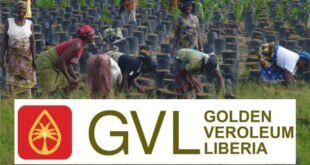Just recently the delegates at the Fifth International Conference on Chemicals Management (ICCM5), in Bonn, Germany, adopted a global framework for a planet free of harm from chemicals and waste. HELEN OJI reports.
The framework is based around 28 targets that aim to improve the sound management of chemicals and waste.
Governments have committed to create the regulatory environment to reduce chemical pollution and implement policies to promote safer alternatives by 2030 and also industry has committed to manage chemicals in a way that reduces chemical pollution and adverse impacts by 2030. The historic decision is to establish the “Global Framework on Chemicals, For a planet free of harm from chemicals and waste.”
Strengthen health agenda
The delegates also called for a phase out of highly hazardous pesticides in agriculture by 2035, where the risks have not been managed and safer alternatives are available. There is a target on strengthening links between the new instrument and the climate, biodiversity, human rights and health agendas.
“It also calls for the transition to safer and more sustainable chemical alternatives, the responsible management of chemicals in various sectors, including industry, agriculture and healthcare and the enhancement of transparency and access to information regarding chemicals and their associated risks.
Fear of exposure to chemical exposure
According to the, Executive Director of the UN Environment Programme (UNEP),Inger Andersen, “Everyone on this planet should be able to live and work without fear of falling sick or dying from chemical exposure. Nature, free from pollution, should be able to thrive and support humanity for millennia to come,”.
Andersen further states that beating a target is better than meeting a target, so he call on governments, the chemicals industry and everyone involved to go above and beyond what has been agreed to protect people and the planet upon which we all depend.
“Slow or weak implementation will come back to haunt us in the shape of more deaths, more assaults on nature and more economic losses.”
Safety management
A decision was also made to unlock financing for the implementation of the framework from different sources. Germany, the president of ICCM5, pledged EUR 20 million to this fund, which will be administered by UNEP.
The Global Framework on Chemicals, pollution and waste, is recognised at the same level as the crises of climate change, nature and biodiversity loss, which already have frameworks in place.
“In addition to the Global Framework on Chemicals, ICCM5 participants adopted the Bonn Declaration, in which they committed to “prevent exposure to harmful chemicals, and phase out the most harmful ones, where appropriate, and enhance the safe management of such chemicals where they are needed.”
They also expressed their will to “actively promote and support transitions to circular economies, including through the development of safe chemical and non-chemical alternatives and substitutes, which protect health and the environment, and lead to reduced waste, recycling free from harmful chemicals, and efficient resource utilization.”
Global framework
The new Global Framework is designed to overcome persisting challenges and reveal the full potential of the previous International Conference on Chemicals Management (ICCM), a series of global meetings convened to address and discuss issues related to the sound management of chemicals and waste.
ICCM meetings have led to the development and adoption of various important documents and initiatives, such as the Dubai Declaration, the Overarching Policy Strategy, and
the Global Chemicals Outlook reports. These outcomes have contributed to advancing chemical safety and management worldwide.
The discussions have encompassed a wide range of global challenges, including the management of hazardous chemicals, the reduction of persistent organic pollutants (POPs), the promotion of safer alternatives, and the integration of chemicals management into sustainable development goals.
Sound management of chemicals
ICCM is closely associated with the Strategic Approach to International Chemicals Management (SAICM). SAICM is a policy framework developed to promote the sound management of chemicals throughout their life cycle.
“This is why this framework provides a vision for a planet free of harm from chemicals and waste, for a safe, healthy and sustainable future.”
 JamzNG Latest News, Gist, Entertainment in Nigeria
JamzNG Latest News, Gist, Entertainment in Nigeria









